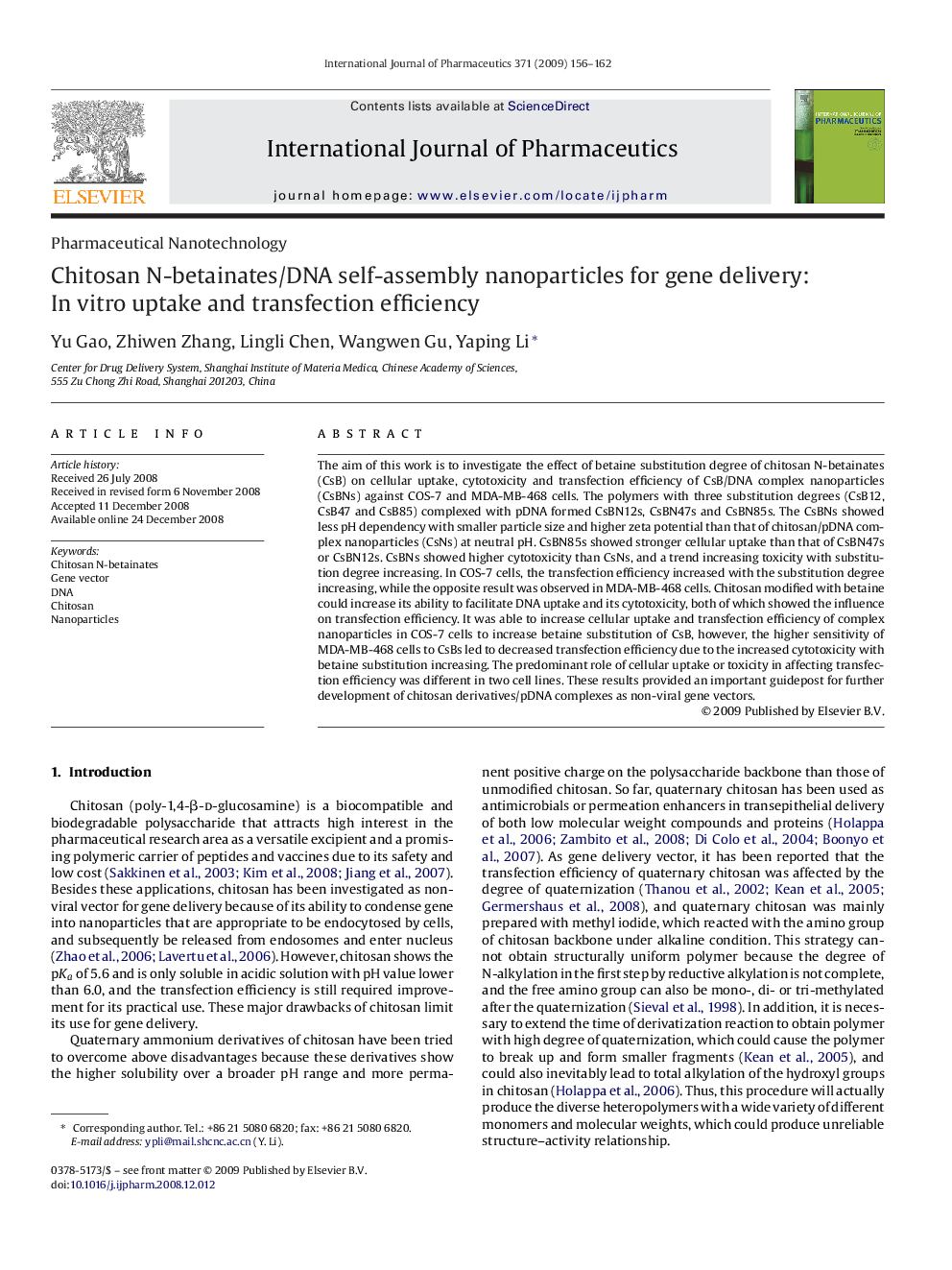| Article ID | Journal | Published Year | Pages | File Type |
|---|---|---|---|---|
| 2504857 | International Journal of Pharmaceutics | 2009 | 7 Pages |
The aim of this work is to investigate the effect of betaine substitution degree of chitosan N-betainates (CsB) on cellular uptake, cytotoxicity and transfection efficiency of CsB/DNA complex nanoparticles (CsBNs) against COS-7 and MDA-MB-468 cells. The polymers with three substitution degrees (CsB12, CsB47 and CsB85) complexed with pDNA formed CsBN12s, CsBN47s and CsBN85s. The CsBNs showed less pH dependency with smaller particle size and higher zeta potential than that of chitosan/pDNA complex nanoparticles (CsNs) at neutral pH. CsBN85s showed stronger cellular uptake than that of CsBN47s or CsBN12s. CsBNs showed higher cytotoxicity than CsNs, and a trend increasing toxicity with substitution degree increasing. In COS-7 cells, the transfection efficiency increased with the substitution degree increasing, while the opposite result was observed in MDA-MB-468 cells. Chitosan modified with betaine could increase its ability to facilitate DNA uptake and its cytotoxicity, both of which showed the influence on transfection efficiency. It was able to increase cellular uptake and transfection efficiency of complex nanoparticles in COS-7 cells to increase betaine substitution of CsB, however, the higher sensitivity of MDA-MB-468 cells to CsBs led to decreased transfection efficiency due to the increased cytotoxicity with betaine substitution increasing. The predominant role of cellular uptake or toxicity in affecting transfection efficiency was different in two cell lines. These results provided an important guidepost for further development of chitosan derivatives/pDNA complexes as non-viral gene vectors.
